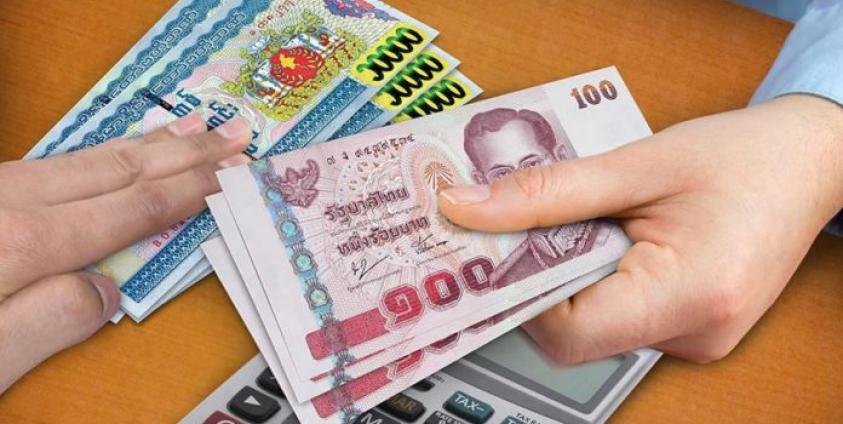Border traders report that due to the increase in domestic dollar and gold prices, the exchange rate of the Thai baht has surged to approximately 90 kyats to a baht.
On June 21st, the US government implemented sanctions targeting the Myanmar Foreign Trade Bank (MFTB) and Myanmar Investment and Commercial Bank (MICB), which are under the control of the Military Council. This resulted in a significant surge in domestic dollar and gold prices.
Within the domestic market, the value of one US dollar surged to approximately 3200 kyats, while the price of gold skyrocketed to over 3.2 million kyats per tical (equivalent to 16.33 grams).
"As the dollar price and gold price surge, the baht price inevitably follows suit. Given the challenging state of Myanmar's currency unit, it is no surprise that these three units are subject to monopolization”, a trader said.
Due to the sanctions-related implications, the exchange rate of the Thai Baht has increased from the previous rate of 83 kyats per baht to approximately 90 kyats per baht.
“When the dollar and gold prices ascend, it is often accompanied by the ascent of the Thai baht. In the present scenario, prices of goods have not witnessed a substantial surge, but rather a slight increase. Hence we can deduce that the price landscape remains within the normal range of fluctuation according to the trader.
While the baht has experienced a notable price hike, border traders anticipate minimal impact on the cost of goods, owing to the continued smooth functioning of trade channels.
Prior to the coup, the exchange rate stood at a modest 30 kyats per baht. However, in the tumultuous period that followed, the price doubled, rendering the exchange rate highly unstable.
Essential commodities such as basic foodstuffs, medicines, cosmetics, construction materials, raw materials, consumer goods, and general merchandise predominantly find their way into Mon State through the Myawaddy border gate







